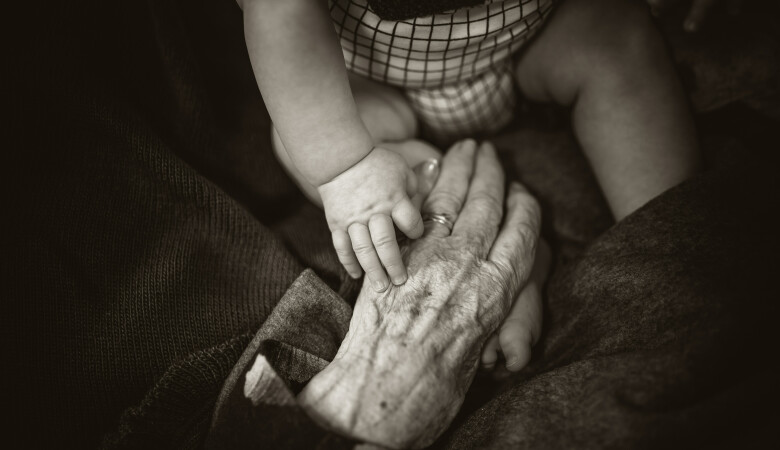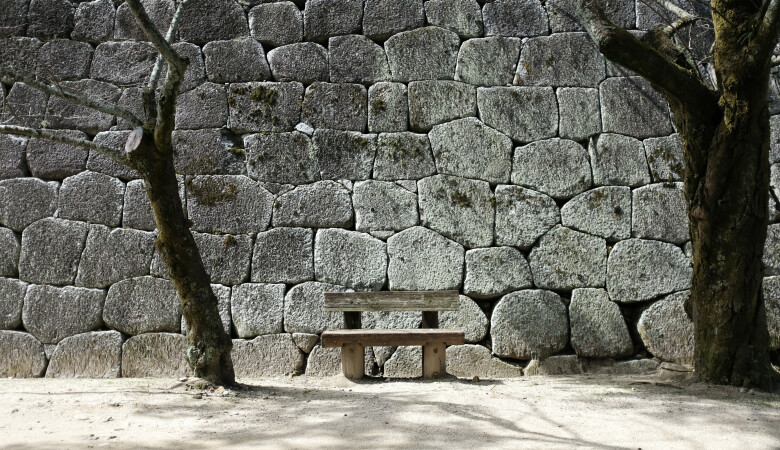The Sacrifices of the Christian Life (Hebrews Sermon 73 of 74)
July 29, 2012 | Andy Davis
Hebrews 13:15-16
Evangelism, Boldness & Courage, Animal Sacrificial System
Unless a Grain of Wheat Dies…
I think there is a single verse that sums up the dynamic of what I consider to be the greatest story that there is in history over the last 2000 years. The greatest story that there is, there's all kinds of histories you can study, but the greatest story there is, is the building of the church of Jesus Christ over 2000 years. Of individual souls, men and women, boys and girls, people around the world in various settings, various tribes, languages, and peoples, and nations coming to faith in Christ being ingrafted into that living olive tree, being built in as living stones in a rising temple, being in some way incorporated in the body of Christ by faith. That is the story.
And it's not always reported as the lead story in the nightly news, I would say it's hardly ever reported that way. But we Christians, we know that that is the story and as I look at the advance of the Gospel through its various eras over the last 20 centuries from that small upper room where there were just a 120 men and women assembled waiting for the gift of the Holy Spirit. The Holy Spirit poured down on the day of Pentecost, and they flooded out into the streets and began preaching to the crowds, the throngs that have been gathered there by the Jewish feast of Pentecost and by the sound of the rushing wind that assembled them right around that place where they were staying, and Peter preached that awesome Pentecost sermon and 3000 repented and believed that day and were added to the church. From that day through, all kinds of dangers, toil, and snares, the church of Jesus Christ has been built as Jesus said, "I will build my church and the gates of Hades will not prove stronger than it."
Well, I think there's a verse that sums up the dynamic, the energy, the drive perhaps even the mechanism, the way by which it's happened. John 12:24, Jesus as he was thinking about his own death as he was meeting some Greeks that wanted to meet him and a few of his disciples brought these Greeks, he began thinking about his own death, imminent death. And he said this, in John 12:24, "I tell you the truth, unless a kernel of wheat falls into the ground and dies, it remains by itself a single seed, but if it dies, it brings forth much fruit."
He was clearly talking about his own death. And the fruit that has come from the death of Christ is incalculable, it is infinite, it will go on for all eternity. But he also spoke in general terms, this is a spiritual principle that if a kernel of wheat refuses to fall into the ground and die remains sterile, no fruit comes from it, but if it dies, it brings forth much fruit. And so Christians, imitators of Christ, followers of Christ have followed his pattern, have laid down their lives for others.
They have made of themselves living sacrifices, and in some cases, the martyrs dead sacrifices, so that the blood of martyrs was seed for the church and much fruit has come. And so this morning I want to think about sacrifice, the principle of sacrifice. Every missionary that's ever said goodbye to family and friends and has crossed miles of ocean, or burning sand, or rugged mountains, or into steamy jungles to win converts for Christ, to win people for Christ has made sacrifices, has done it through the principal of sacrifice. Every Christian that ever braved out the lethal dangers of the plague during the 13th century, at other times, the plague broke out in Europe at various times and every Christian that refused to love their own lives so much as to shrink from death, they refused to do that, but nursed and cared for, not only family and friends, but neighbors, unsaved and were willing to risk their lives and in effect trade their own health for the other person's disease nursing them to health while they died to the same plague, has done it from a principle of sacrifice.
Every mother who has put in long hours to pray for and to train and to raise up children, up in the middle of the night with sickness, crafting, learning experiences, weeping over their struggles, spiritual, especially, has understood this principle of sacrifice. So also, every father who lays down his life for his family, in the same way for his wife as Christ did for the church and for his children to bring them up in the training, in the nurture, and the admonition of the Lord, has done it out of a principle of sacrifice.
Every humble servant in a local church who has denied him or herself sleep so that they can do some kind of ministry like an urban ministry like we had yesterday. The summer sizzle, the cookout which was phenomenal. I praise God for it, great seeds were sown, I saw a lot of laborers from this church going out and I thank you for it and I praise God for all the work that Matthew and Zenaida and many others did to reach out but it's all been done out of a principle of sacrifice.
Frankly, every pleasing gift, every act pleasing to God has been done by Christians in a spirit of Christ-honoring, really Christ-imitating, self-denying sacrifice. Every dollar given, every hour spent in prayer, every time that we use our spiritual gifts in a way that pleases him. It's done for the principle of sacrifice. Frankly, I don't think we can do anything loving that isn't a sacrifice. We're going to talk about that today. That is the essence of how love express itself, in cheerful sacrifice for the benefit of another.
So the church is advanced in the same way, why are we talking about this today? Well, if you look at the verses that were just read verses 15 and 16, they both mentioned sacrifice. There it says in verse 15, "Through Jesus therefore let us continually offer to God a sacrifice of praise, the fruit of lips that confess his name. And then in verse 16, "And do not forget to do good and to share with others for with such sacrifices, God is well pleased."
I. More Lessons from the Sacrificial System
So this is the second to last sermon that I'll preach in the Book of Hebrews. And it seems reasonable for me as I look at the use of the word sacrifice twice in these verses 15 and 16, to take a step back, and in a big picture look one more time at the sacrificial system, animal sacrifices, because the author is telling us, and we're going to talk more about this one last time that that whole system is finished. It's done but the principle of sacrifice is not and there are still sacrifices of the Christian life and so what I'm going to do is I will exegete and explain verses 15 and 16, but I'm also going to go beyond and take a wider lens view of sacrifice in the new covenant, in the New Testament, and various verses that talk about that principle, how Christians are called on to sacrifice even though the animal sacrificial system is done, and how we are to live out a life of sacrifice from various places in Scripture and bring it all together for you.
So that's what we're doing today and the reason is that the author has given us the ending of the Old Covenant, and at the center of that Old Covenant was this principle of animal sacrifice. It was established right from the beginning of redemptive history, right after the fall, you remember how Adam and Eve in the garden ate from the forbidden fruit, the fruit of the tree of the knowledge of good and evil, and immediately their eyes were opened and they realized that they were naked and they tried to cover themselves with fig leaves and God addressed that whole issue at the end of that chapter by covering them with animal skins.
And as I said before, the animals don't give them up lightly. Alright, those animals had to die, the shedding of blood had to be done for the covering of their nakedness. And the fact that this was going to be repeated, a clear repeated principle is established right in the very next account. In the next chapter, in Genesis Chapter 4, we have Cain and Abel offering up sacrifices to God, and Cain offered up some of the first fruits of the land and Abel offered some of the first fruits of his flock, of the livestock animals. And it was very clear that Cain was doing the wrong thing. God said to him, "If you do what is right, will you not be accepted?" And so God had established kind of in the white spaces that animal sacrifice was going to be a central part of the religion of sinful man. So Abel, offered up this sacrifice.
And then soon after that in the time of Noah, God commanded Noah to take seven clean animals, and two of every unclean animal, and after the flood the first thing that Noah did was built an altar and offered animal sacrifice of the clean animals. Incredible sacrifice given what the flood had done to the earth.
Then you see animal sacrifice in the time of the patriarchs, Abraham, Isaac, and Jacob, the building altars, offering animal, animal sacrifice. There's the little boy Isaac saying, "Here is wood and fire, but where is the animal for the sacrifice?" So the animal sacrificial system was up and running from the very beginning, but then it was codified, it was made law by the law of Moses and how that whole Levitical system was set up, how the sons of Aaron would the descendants of Aaron would be the high priests and the tabernacle was built and that's how the animal sacrifice would be done.
Well, according to the book of Hebrews all that's finished. It's done. Time for animal sacrifice is over. But though we may be done with the animal sacrificial system, it's not done with us, friends. It still has some things to teach us. This has been a bit of a progressive revelation for me as I go back again and again till I was like, none of us does animal sacrifice, that time is over, and so I kind of shut it down and thought, "Well, I don't have much to learn from it, and little by little, I've seen more and more, and now I see it in kind of a two-step process of what the animal sacrificial system has to teach us now.
The first step is it leads us to the cross, the animal sacrificial system leads us from our sinfulness to the cross for redemption. The lessons of the sacrificial system do that. And now we're going to talk about today. It leads us from the cross to heaven in a pattern of life that is described by the sacrificial system. The two parts, they're getting clear and clear to me the more I study.
Three Lessons From the Animal Sacrificial System
Now you've heard me talk about the first part before, the three great lessons of the animal sacrificial system concerning human salvation. First, all sin deserves the death penalty, the connection between sin and death which God established in the garden of Eden, made very plain. The day you eat of it, you will surely die. The wages of sin is death. "The soul that sins will die," Ezekiel 18. So there's the link in the animal sacrificial system taught at because these animals that you own were not merely confiscated, they weren't sheared for their wool, they were killed, their blood was shed, their blood poured out on the altar, they were killed without the shedding of blood, there could be no forgiveness. So all sin deserves a death penalty, lesson number one.
Lesson number two, the death penalty can be paid by a substitute. The animal sacrificial system taught that when the priest laid his hands on the substitute, on the animal and confessed onto to it, Leviticus 16, the sins of the people, and they were in some way mysteriously, spiritually transferred to the substitute and then the substitute was killed and so the death penalty can be paid by a substitute. The substitute, the animal is dead, but you are alive. Second lesson, leading to the cross.
The third lesson, leading to the cross is that the substitute cannot be an animal, it's just symbolic, the whole thing is just a teaching tool. The blood of a bull, or ram, or a goat cannot really atone for human sin. And the animal sacrificial system taught this by the endless repetition, the author to Hebrews tells us, just by the fact that they're endlessly repeated year after year shows that they were just symbolic.
They were waiting for Christ to come and so in John the Baptist then points at Jesus and says, "Behold the Lamb of God who takes away the sins of the world," he is fulfilling and completing that part of the animal sacrificial system. Jesus, the son of God, shed his blood on the cross, as a sacrifice, he died, without the shedding of blood, there's no forgiveness, by the shedding of animal blood there is no forgiveness, but by the shedding of the blood of Jesus there is.
And if we trust in him, our death penalty can be taken off of us and put on him and we are freed. And there is therefore now no condemnation for those who are in Christ Jesus. Well, you've heard that from me before, it's good to have it repeated, I've used that dozens and dozens of times in witnessing opportunities. It's very clear, it brings you to the cross, it explains things very, very well. But the sacrificial system's not done with us yet, we still have some more to learn from it. And as you can tell from our verses today, verses 15 and 16, there's still some sacrifices the Lord wants from us, they're just not animals.
And so, we have more to learn. The animal sacrificial system still teaches us some things. For example, as you read the Old Covenant, you find from King David, as Araunah the Jebusite wants to give his threshing floor and everything needed for the sacrifice to stop the plague. And David says, "I will not take for the LORD what is yours, or sacrifice a burnt offering that costs me nothing."
So sacrifice has to be costly for us just like it was for God. Sacrifice has to be something that costs us something, it's got to be something valuable. And we learned from the Old Covenant as we read the sacrifices had to be given by faith with a brokenness of heart and contrition of spirit. We're going to get more into that in a moment. But the fact that they were cranking out animal sacrifices, but had no repentance and no sense of sorrow or grieving over their sins and no faith toward God, or relationship with God, just the machinery of animals just running all the time, God through the prophet Isaiah said in effect said stop. God said through the prophet Isaiah "The multitude of your sacrifices-- what are they to me? I have more than enough of burnt offerings, of rams and the fat of fattened animals; I have no pleasure in the blood of bulls and lambs and goats." Stop bringing meaningless offerings. You're incense, and your sacrifices, and new moon festivals, they're detestable to me. Stop it.
Because they weren't in repentance, they weren't broken-hearted. So I can learn that from the Old Covenant, sacrificial system, and then from Malachi I can learn that a sacrifice has to be my best. I have to bring my best to God. As the priest were trying to trick God and cheat God.
And then, Malachi, he says, "'When you bring blind animals for sacrifice, is that not wrong? When you sacrifice crippled or diseased animals, is that not wrong? Try offering them to your governor! Would he be pleased with you? Would he accept you?' says the LORD Almighty. 'Now implore God to be gracious to us. With such offerings from your hands, will he accept you?'-- says the LORD Almighty. 'Oh, that one of you would shut the temple doors, so that you would not light useless fires on my altar! I am not pleased with you,' says the LORD Almighty, 'and I will accept no offering from your hands. My name will be great among the nations, from the rising to the setting of the sun. In every place incense and pure offerings will be brought to my name, because my name will be great among the nations,' says the LORD Almighty.
Now just think about what Malachi is saying there. He has a vision for Gentiles bringing him fragrant offerings to the ends of the earth and to the ends of time. But God knew he was going to be shutting down this Jewish Levitical sacrificial system. And so you put the whole thing together, from Malachi it's like those fragrant offerings, those pure sacrifices brought by the nations are going to be what we're talking about, the rest of this message, and they're going to be the best you have to offer. Don't bring me anything lame. Don't bring me anything blind or crippled, bring me your best.
II. A New Sacrificial System: In Christ, “In Spirit and In Truth”
So those are three additional lessons that I learned from just reading the Old Covenant. Now what I want to do is talk about this new altar that has been established that Hebrews 13 mentions. If you look at it in verse 10, there's this new altar established, this eternal spiritual in the heavens, established through the blood of Christ. He says in verse 10, "We have an altar from which those who minister at the tabernacle have no right to eat." So there is an altar and the altar is for sacrifices, right?
There's a new altar set up. And so this is the culmination of the whole meditation the author's been doing on the end of the Old Covenant sacrificial system. The blood of bulls, and goats, and Levitical priests, all that is done but there's still an altar. Jesus Christ, the Son of God, entered the world, as a man, incarnate of the Holy Spirit, he became a priest in the New Order of Melchizedek, a priest king, and he offered, once for all, he died, once for all, to make a sacrifice available for our sins, to cleanse his people perfectly of their guilty consciences, of their sins before God. And in this way, the Old Covenant animal sacrificial system is obsolete forever. So if you were to look back at Hebrews 8:13, don't do it, but I'll just quote it. It says, "By calling this covenant new, he's made the old one obsolete and what is obsolete and aging will soon disappear." So God providentially shut down the animal sacrificial system by the Roman army destroying the temple burning it to the ground and has never been permitted to be re-established. And I tell you, God will never again be pleased with animal blood offered to him in worship. It's done forever. There's no need for it, it's gone forever, not like there's no need. It would be insulting to what Christ accomplished on the cross.
It's finished, but in the place of that old altar, we have a new altar. And it's established in the heavenly realms, it's described as heavenly, it's not earthly. And we can eat from it metaphorically, spiritually. We have an altar from which those people have no right to eat, we get our eating. Now what's the whole eating thing? Well, back then the animal, the blood was poured out and you still had the flesh and in many cases, the worshipers were permitted to partake of the flesh of what was offered, they were able to eat from it, the priest were and the people too sometimes.
Various rules about that. But now, the author is picking up on the eating thing and saying that we have a whole different kind of eating that we're doing now. We're getting spiritual energy and strength from a new kind of sacrificial system that as we offer these sacrifices, we get strong and get energy from this religion, this new way of offering sacrifice to God. And we have a right to eat and they don't, because they still believe in the old system, and they're rejecting Christ, and by their unbelief, they have no right to eat from this. But we, we Christians, we have a new altar. It's in the heavenlies, it's a spiritual altar.
And as Jesus said to the Samaritan woman, "Neither on this mountain nor in Jerusalem, will you worship the Father. God is Spirit…" You can worship him anywhere. And so you have access to that altar anywhere you go, everywhere, all the time. It's mentioned in the Book of Revelation a few times in Revelation 8, in verse 3, "Another angel at a golden censer came and stood at the altar." So there's this word Altar. It's up in the heavenlies. "And he was given much incense to offer which are the prayers of the saints." One translation says or, "With the prayers of the saints." It doesn't matter from my point. The prayers of the saints are wafting up from that altar to God. You see what I'm saying? And so, as we pray filled with the Spirit, as we're praying what God's told us to pray and that kind of thing, it's like an aroma wafting up before God from this new altar. Do you see? And there it is, in the heavenlies, mentioned again in 8:5 and in Revelation 9:13, as well, this altar in the heavenlies. And this altar's the place on which these sacrifices I'm about to list, if I ever get to it, I'll get to them. They're coming.
But these new sacrifices that God wants us to list, to offer, they are made on this spiritual altar in the heavenlies. So our text makes plain that Christ truly is this platform. Look at verse 15, "Through Jesus, therefore, let us continually offer to God," etcetera. See, "Through Jesus," Jesus is the altar to some degree, Jesus is the way through by which these sacrifices are made. So the New Covenant change in the sacrificial system is freedom in sacrifice, not freedom from sacrifice. It's a different way of sacrificing now.
A different purpose for the sacrifice, Christ once for all, sacrifice, ends forever the sacrifice of atonement. There's no need anymore for any offerings in reference to guilt for sin. It's done. We'll talk about that. We have access, new access. There are no restrictions anymore. You don't have to be a Levite. You don't have to be a son of Aaron. You have free access like it says in Colossians 3, "In Christ, there's neither male nor female, Barbarians, Scythians, slave or free." It doesn't matter what tribe you come from, it doesn't matter what your gender is, you have free access to make offerings to God in this way.
Marvelous. And so there's no restrictions in that regard. By the way, I'm not in any way saying they're not gender-based roles in the church, I believe there are, but I'm saying men and women, boys and girls, believers can offer to God, sacrifices that he accepts all the time, and not just can, but should and must every day. Objects of the sacrifice have changed. Animals are no more accepted. Free from physical challenges of the animal sacrificial system. Amen and Amen.
I mean, a bull is a big thing. I mean, just trying to get it to come to the temple. I wonder how they did that or you had to carry your little sheep on your shoulders, and all that. It was difficult. And I'm not saying our sacrificial system has not got difficulties, but you're at least free from the animal side to it. The animals are no longer the object of worship. The places I've said, no one place of worship is required. In terms of the time, there's no schedule anymore, mornings and evenings and it's basically the yearly calendar, three times a year and all that, that's all done. It's all been fulfilled.
So, we have freedom. As it says, look at verse 15 again, "Through Jesus, therefore, let us continually offer to God a sacrifice…" And so we do have sacrifices to make. And so, really, the author at this point is answering charges, I think, that these Christians, this new sect that is everywhere spoken against have no religion. "You don't have a temple, you don't have animals, you don't have a priesthood. You don't have a religion. What do you have?" He says, "No, we actually do. We have sacrifices that we offer." "And so what are they?" Well, they're listed in your bulletin. I'm just going to say them quickly and then describe them.
The first is, a sacrifice of a broken and contrite heart. There's a definite order to these that I'm giving you. The sacrifices of a broken and contrite heart.
Secondly, the sacrifice of faith in Christ as our once for all atonement. I'm going to argue that those two are fundamental to everything that follows. If you don't understand that then you're probably trying to earn your salvation by works. So we start with those two.
Then the, "Link sacrifice," which is the presentation of the body as a living sacrifice to God.
And then flowing from that the sacrifice of our earthly comforts in witnessing, that's last week's sermon just a little bit of a redux on that, but the willingness to suffer for others and to bear their approach and to give up comforts, so that others can be brought to faith in Christ as a sacrifice. And I'm going to show it right from the linking the way that the author links them.
Number five is the sacrifice of worship or praise, the fruit of lips that confess his name, which is going to do double duty as I'll share in a moment, but worship just the confession of God's name by your lips.
And then finally, the sacrifice of good works to benefit others, the giving of your time, your energy, your money, your possessions, given to whoever needs them, as the Lord leads. Those are the sacrifices of the Christian life. And I think they'll cover it, don't you think? I mean, if you look at that and you say, "If I would just do those things and there's just a stream and a wafting aroma of my life, that's a good life." And so, the sacrificial system brings you to the cross. And having done that, it brings you from the cross right up to heaven with a pattern of good works that the Lord has laid out for us.
III. Sacrifice #1: A Broken and Contrite Heart
Let's look at them one at a time briefly. Sacrifice number one, a broken and contrite heart, of course, this comes from Psalm 51 in verse 17, "The sacrifices of God are a broken spirit, a broken and contrite heart oh, God, you will not despise." This is foundational to everything that follows. A New Covenant worshiper offering sacrifices to God is continually mindful of their own sinfulness and is humbled by it.
And not only that but mindful of their status as a creature. So you are a created being, And you are going to worship God with reverence and awe, because you're a created being, and you are to be humble and broken-hearted over your sin. Now, I have had some rather painful discussions in the last few years with some people who think that this aspect is inappropriate for the Christian life. They say we should never, ever be mindful of our past sins and not be thinking about them or have any sense of shame or any sense of anything. They're forgiven, we're cleansed, we don't go back, we don't think about those things anymore. Friends, that's wrong. I don't know how to say it, it's just wrong. It's just wrong.
Alright, tell me why you think it's wrong. Alright, how about 1 Timothy 1:13-15. Go ahead and look there if you would. Put your finger here in the Bible and Let's go back and look at 1 Timothy 1:13-15. 1 Timothy 1:13-15, the apostle Paul is talking about himself. And this is what he says, "Even though I was once a blasphemer, and a persecutor, and a violent man, I was shown mercy because I acted in ignorance and unbelief. The grace of our Lord was poured out on me abundantly along with the faith and love that are in Christ Jesus. Here is a trustworthy saying Christ Jesus came into the world to save sinners of whom I am the worst."
Alright, well, according to the theory of the person who was debating with me on this, Paul just did huge wrong there. First of all, he remembered his past life. He remembered it in detail, he put specific words on it. I was a blasphemer, and I was a persecutor, and I was a violent man, but God's grace was poured out on me abundantly. Are we supposed to help Paul? You shouldn't do that. Stop thinking about what was forgiven. Don't think about it anymore. You're forgiven now. Friends, that makes no sense to me. That's how we celebrate the grace of God to us. What we don't do is wallow in it as though we were not forgiven or that the blood of Christ isn't enough or any of that, that we do not do. But we remember and we're humbled by it. And we're mindful of it and we are thankful to God for the grace that was poured out on us. But we didn't stop there, look at verse 15. Do you see the last few words of whom I was the worst, is that what he says? No, no, no, "Christ Jesus came into the world to save sinners of whom I am the worst."
So he's not just talking past now, he's talking right here right now, "I, under the inspiration of the Holy Spirit, I tell you, of myself, as I look at myself, I am the worst sinner on earth." I mean, how could that be? He's an apostle, he's doing all these good works. Well, he is more intimately acquainted with his Romans 7 sin nature, flesh nature than he is with anybody else's. And as he looks at it and all that's been given to him and all that's been lavished on him and he still sins, the very thing he hates, he does and the very thing he wants to do, he doesn't do, he says, "I'm the worst." Friends, it's okay to do this, amen? It's okay, not only okay, it's wonderful because this gives you a broken and contrite heart out of which all of the rest of this comes, so I think we ought to learn to cultivate humility before God. Paul said he's the worst sinner on the face of the earth. And when he wrote 1 Timothy 1, he's an apostle and completely forgiven and joyful and healthy and in salvation.
So go to God with deep reverence and humility. Offer to him the sacrifices of a broken and contrite heart that David said God will always accept. And in James 4 it says, "But he gives us more grace, that's why scripture says, God opposes the proud, but gives grace to the humble." So don't be prideful, be humble and take grace, grace is always for sin, so take grace. And again, 1 Peter 5, "All of you clothe yourselves with humility toward one another. Because God opposes the proud, but gives grace to the humble. Humble yourselves therefore under God's mighty hand that he may lift you up in due time." Humble yourself under him.
IV. Sacrifice #2: Faith in the Completed Work of Christ
Alright, second sacrifice. Faith in the completed work of Christ. Now, it'd be easy for you to misunderstand. So, I'm emphasizing completed. Once for all, we're not offering a fresh Jesus, like the Roman Catholic priest do in the mass. We are not doing that, don't believe in that. It's done, but what you do need to do as you see the sin in your life as you're mindful of your past, as you're thinking about your present, what's going on, you need to immediately be mindful of and by faith, look upward to a finished work done for you on the cross, the blood of Jesus shed on the cross for you, so by faith, you're humbled, broken, convicted, and then brought right to the cross by the Spirit. Once for all, Jesus himself doesn't keep offering himself at the right hand of God, he doesn't, it's done. This is what's once for all means, it's done forever. So say something like this, "Lord, I've just recounted to you my sins, my feelings. I've allowed my flesh rule me, I've followed the ways of this world and under the rule of the kingdom of the air. Satan's deceived me, I've fallen into temptations. I'm guilty of sin before you, but thanks be to God, you have already fully atoned for all my sins."
And as you allow this once for all finished work of Christ to be appropriated again for your new wave of sense of sinfulness, you allow your guilty conscience to be cleansed by that blood, you will revel in this, it will wash over you. This is not your sacrifice, you are not offering anything, but you are by faith recognizing that it was offered for you. Does that make sense? Not again and again, offering. And it's just going to wave and you're going to swim in an ocean of grace and mercy and forgiveness and know how forgiven you are, and how completely righteous you are in the side of God. And so, that's foundational to all the sacrifices that are to follow, right?
If you don't do those first, then you're going to be trying to pay for your sins by your good works, like everybody does, but Christians, we don't do that, we do it as forgiven people. We can't improve our standing at all by any sacrifices we offer. And so understand all of the following sacrifices are made through Christ's finished work. Look again at verse 15, go back, leave 1 Timothy now and go back to Hebrews. In Hebrews 13:15, it says "Through Jesus, therefore, let us continually offer to God a sacrifice." So we're mindful of our sin, sacrifice number one. We're mindful of Christ's blood shed for us, sacrifice number two. And you know what, it's going to be a strong, powerful dosage of humility, because you know what, the world has been changed by the sacrifices that follow. It's been changed forever by Christians who presented their bodies to God as living sacrifices, boldly went outside the camp and bore their approach of Christ and witness for him.
And who were worshipping and praising filled with the spirit, happy in Jesus, delighted in him, like Paul and Silas in the Philippian jail and just praising God and who were sacrificially giving their time and their energy and their money to the poor and needy. The world has been changed by that. And when that starts happening in your life, it would be good for you to be grounded in humility. Amen. When God starts using you huge to do awesome things, it'd be good to start again and again with the first two. Your sinfulness, you see it, you recognize it, you're broken and contrite before it, and yet Jesus paid for it as a foundation.
V. Sacrifice #3: Our Bodies in Constant Service to God
So, sacrifice number three is your bodies, our bodies in constant service to God. "Therefore, I urge you brothers, in view of God's mercy, to offer your bodies as living sacrifices, holy and pleasing to God. This is your spiritual act of worship." so you present your body to God as a living sacrifices. You say, "Now wait a minute, Pastor, that's in Romans. I thought you were an expositor. Aren't we in Hebrews?" Oh, please let me go to cross-reference. Is that okay? So go over to Romans 12:1, don't go there, but you know it.
You're going to present, in view of God's mercy to you, in view of the atonement, you're going to present your body. Your body is your vehicle of service to God, your hands, your eyes, your mouth, your ears. Your body is your vehicle of service, present it. What does it mean? He is your Lord, he is your master, he's your king, you are his slave, you are saying, "Take my life and use it whatever way you choose," we sang it already.
So, we present "I am fully yours to command." Well, the idea here of holiness as we are holy, we then present our bodies, living bodies as a holy sacrifice, is already established in Hebrews. Go back in Hebrews, to Hebrews 9:14, Hebrews 9:14, and what I want to do is show you that basically Hebrews 9:14 is teaching Romans 12:1, it's the same thing. But Hebrews 9:14 it says, "How much more then will the blood of Christ, who through the eternal Spirit, offered himself, unblemished to God, cleanse our consciences from acts that lead to death," do you see that? What's the rest? "So that we may serve the living God."
It's the same thing. In view of God's mercy, cleansed by the blood of Jesus, our conscience cleanse, we are freed now to serve the living God. It's awesome. So it's basically is taught in Hebrews, it's just a little bit clear in Romans with this presentation language. You present your hands, your feet, your eyes to Jesus as your commanding officer to serve.
And so, therefore, I would suggest you do this every day. Begin your day by saying, "Lord, I am yours to command. Here is my body, here is my mouth, here is my mind, here is my stomach, here's everything, take me and use me, fill me with your Holy Spirit, use my hands to do godly things, use my mouth to speak messages for your glory. Use my stomach, may it only have in it what you want to have in it today." Alright, amen. I mean, just my feet, may I only walk on those paths you've ordained for me to walk?
VI. Sacrifice #4: Our Earthly Comforts in Witnessing for Christ
Sacrifice number four, our earthly comforts and witnessing for Christ. This was last week's message, verse 13, "Let us then go to him outside the camp bearing the disgrace he bore." So that is be willing to give up societal comforts, the comfort of good relations with your lost neighbors, and co-workers, and family, be willing to give that up, while you live in community with them, because we're not called on to leave this world, but live in it and to become all things to all people, become Jews to the Jews and Greeks to the Greeks. We do what we can to fit in. But God's calling you fit in but every day walk outside of the gate, be willing to trade it in.
And so, that rhythm of fitting in, trading it in, fitting and trading it in is tough and it's a sacrifice. And as you are willing to trade in your earthly comforts and trade in that kind of a pleasant relationship with your lab mate, with your roommate, or your neighbors, you're willing to trade it in because you said the name Jesus and try to witness and try to... That is a sacrifice well pleasing to God. And as you do that, the advance of the Gospel is powerful and beautiful. And the reason we do it is, here we do not have verse 14, an enduring city, but we're looking for the city that is to come.
So as we look ahead to our rewards, we notice that verse 14 flows right into verse 15. Look at it, "For here we do not have an enduring city, but we're looking for the city, that is to come "through Jesus, therefore, let us continually offer to God a sacrifice of praise, the fruit of lips that confess his name." I told you that verse is going to do double duty. Here it's evangelism. The next point, it's going to be worship.
But I think it fits either way. First evangelism/missions, as we go outside the camp, as it says, "Therefore," it's linking verse 15, from 14. As we go outside the camp, we are confessing the name of Jesus, we are witnessing, we are saying the Gospel, Jesus is the Son of God, died on the cross. We're confessing doctrine and as we confess that, we're praising and worshipping God in front of lost people. I've said before, that's the best way to do evangelism, celebrate Jesus in front of a lost person. I mean, throw a party for Jesus, they're on the plane or whatever, just be happy about Jesus and if they want to join in fine, if not, just do it anyway, it's joy.
And so, as we confess his name, as we worship, we are willing to give up as Jim Elliot put it, "Well, we cannot keep to gain what we cannot lose." We're willing to sacrifice... I think America does comfort probably better than any nation on earth. I mean, we're experts at comfort, experts, bodily comforts, climate-controlled rooms down to the 10th of the degree. I actually have an LCD printout or control where I can dial in, I think, to the 10th of the degree of what temperature I would like. That's pretty awesome. I mean, you can do that with your shower water, I think. You can get your shower water to be exactly the right temperature, whatever you think is best. It's amazing, so well-organized grocery stores, readily accessible Walmarts, smoothly paved roads. As soon as there's a pothole, you wonder where the DOT is and how long it's going to be to fix it. Go on a mission trip. It's like it's a shock when you find the paved road. I remember that, I mean, we were in the western part of China and there was this beautifully paved stretch of road that lasted half a mile, but nothing but rocks on either side. It was one of the most amazing things probably that highway was finished by now, but I'll never forget it, it had been nothing but rock roads up to that point, and then it was smooth for about 41 seconds and it was really kind of exciting.
But I mean, we're used to comfort. We're used to high-paying jobs that reduce suffering and maximize pleasure. If you're willing to give all that up for the Gospel, it's a sacrifice that's well pleasing to God. So be willing to start weakening your love for earthly comforts, ask God to give you opportunities every day to stand outside the city gate, and bear Jesus's abuse, speak up for Christ at work. Look for ways to enter into the more personal lives of your co-workers, find out what's going on. So, you can pray for them and witness to them. Make the sacrifice of doing outreaches, like summer sizzle, again, thank you for those that made that sacrifice to be there, make the sacrifice of missions. So we're going to commission another mission team at the end of this worship service in just a few minutes.
VII. Sacrifice #5: Praise—the “Fruit of Lips” That Confess Christ
And then sacrifice number five, the fruit of lips, praise the fruit of lips that confess Christ through Jesus, therefore, let us continually offer to God a sacrifice of praise, the fruit of lips that confess his name. Simply put, the finished work of Christ for us should flow out in a river of praise, we should be praising his glorious grace every day, Ephesians 1. And we do that in a kind of a rhythm that God has saved us Psalm 15:15, "Call upon me in the day of trouble, I will deliver you and you will honor me."
So as we call on the name of the Lord and he has delivered us from our sins, we then worship him. So we have abundant reasons to just thank God for all of his work in us, all that God has done, and we do that corporately and we do it individually. You can do it continually it says through Jesus let's continually offer. So as you come together for corporate worship, we're just speaking and praising the fruit of lips. And isn't it amazing that he wants to hear anything from our lips at all? It says in Romans 3, "The poison of vipers is on their lips." Isaiah the prophet said, "I'm a man of unclean lips and I live among a people of unclean lips." You know what, God has the ability to cleanse our mouths, so that we speak words of praise. So how about this, how about instead of Gossip this week, let's praise Jesus? Amen.
Instead of slander this week, let's speak fruit of lips that confess his name. Let's do that. Instead of arguing, instead of complaining, let's praise Jesus this week, let's speak it out. We're not supposed to have... I was witnessing one guy, he said, "My faith is an intensely personal and private thing." He's wanting me to stop talking to him about Jesus, I think is what it was, but that's not the way it is for us Christians, we want to speak our praise in the great assembly. So when we come together, we're going to praise and worship him. It might be your favorite song. And you get to sing and praise, because it's one of your favorite songs, it might not be your favorite song. And you get to sing and confess his name anyway. You get to do it like Paul and Silas in the midst of extreme suffering and afflictions, singing praise songs to Jesus. As you confess his name. The final sacrifice, I want to mention to you is good works. Look at verse 16, And do not forget to do good works and to share with others for the sacrifices God is well pleased.
Friends, we are his workmanship, we are created in Christ Jesus to do good works. That good work is going to... Those good works will be sacrifices, you're going to give up your time, you're going to give up your money, you're going to give up your energy, you're going to give to do those good works, you're going to share with others. God has sovereignly ordained and any quality of a distribution of wealth even within the church, there's some that are richer than others. And he's done that I think to bring the body of Christ together. So those who are wealthier can, 1 Timothy 6, share with others in need, and so their hearts are drawn together. This is a sacrifice that we can make in serving God. Friends, this is obviously a big topic, it's powerful. But as you look at these sacrifices, these six sacrifices, this is a rhythm of the rest of your life that will carry you. Storing up treasure in heaven with such sacrifices, says God is well pleased. You know what's going to happen?
On judgment day, when all of your good works have been refined by fire, and you've made it on the other side and all of your treasures stored up in there, you know what you're going to find in each of those treasures is? It is God's pleasure in what you did. It's God's pleasure in your active evangelism, it's God's pleasure in your secret giving, it's God's pleasure in your prayer life And he will share it with you and he will say, "Well done, good and faithful servant." You've been faithful to a few things. Now, I'm going to put you in charge of many things. Now enter into the joy or the pleasure that I had when you did it." Close with me in prayer.






























